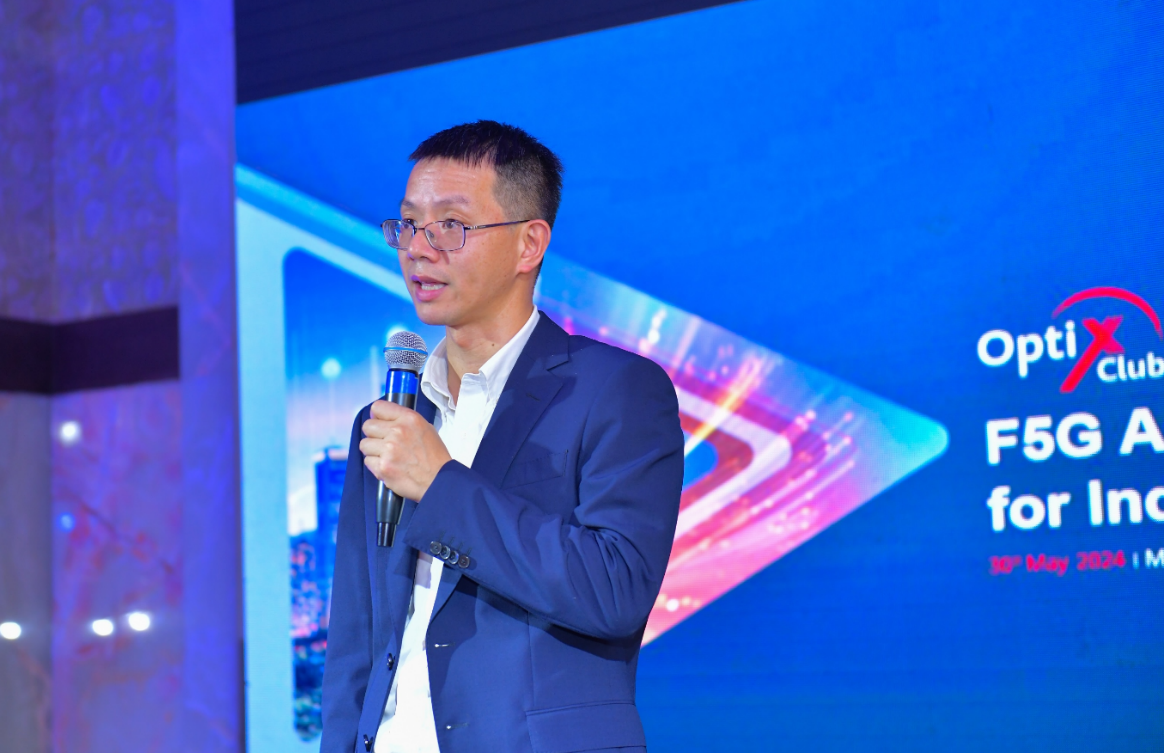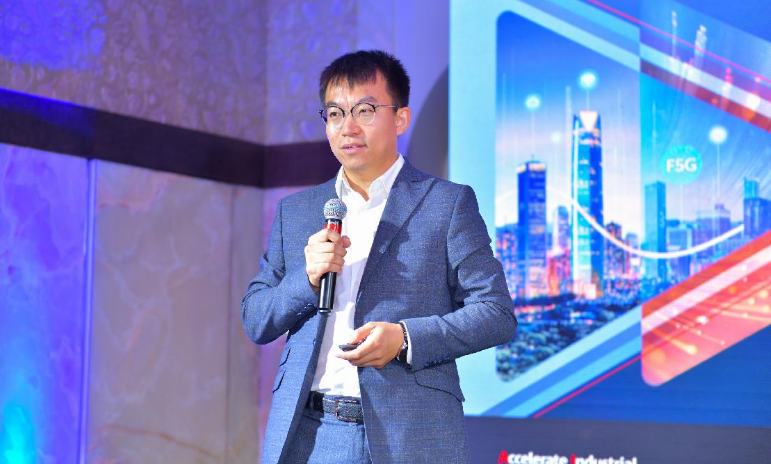Produits, solutions et services pour les entreprises
Akıllı Telefonlar, Bilgisayar&Tabletler, Giyilebilirler ve Daha Fazlası
[Marrakesh, Morocco, May 30, 2024] Recently, the second GITEX AFRICA Summit was held in Marrakesh. At this summit, Huawei showcased the latest optical communication technologies and solutions, and held the OptiX Club with the theme of "F5G-A, the Foundation for Industrial Intelligence". More than 100 customers and partners from industries and sectors such as government, electric power, education, finance, and healthcare attended the event. At the OptiX Club, Huawei comprehensively described three major trends in the F5G-A industry and Huawei's latest solutions to address these industry trends, and deeply interpreted the fgOTN technology. In addition, Huawei released the fgOTN Technical White Paper for the Africa to accelerate industrial intelligence.
Kevin Liu, Vice President of Huawei Enterprise Optical Business Domain, said, "Industry intelligent transformation is full of uncertainties. Optical connectivity and sensing can help to build a reliable foundation for industry intelligence. At the same time, industry intelligence also brings three trends to the optical industry: Fiber-in Copper-out, fgOTN-in SDH-out, and Optical-sensing-in Hard-Work-out. Huawei has been deeply engaged in the industry and continuously explores innovative optical technologies to accelerate industrial intelligence."

Kevin Liu, Vice President of Huawei Enterprise Optical Business Domain, delivering a speech
Huawei elaborated on the three new trends brought by industrial intelligence to the optical industry and Huawei's technology evolution roadmap for the three trends.
• Fiber-in Copper-out: In home and campus networks, copper cables are being replaced by optical fibers. For home networks, in order to provide ultimate experience for home digital life, Home broadband technologies are developing from fiber to the home (FTTH) to fiber to the room (FTTR). On the access side, full-scenario home broadband solutions, such as FTTR and Trouble-Free ONT, are used to help ISPs improve user experience and reduce OPEX. On the backbone and metro networks, Huawei's industry-leading 400G backbone solution and innovation ALPS-WDM solution enable ISPs to easily cope with traffic growth on the networks. On campus networks, Huawei launched the next-generation FTTO 2.0 Solution, in which Huawei uses XGS-PON Pro and Wi-Fi 7 technologies to upgrade bandwidth, networking, and O&M, achieving 12.5G/25G to rooms and 10G to APs so as to build a green 10 Gbps all-optical campus.
• fgOTN-in SDH-out: fgOTN is short for fine-grain Optical Transport Network. In the production communication networks of electric power and transportation industries, fgOTN-in and SDH-out has become a trend. Huawei released the industry's first all-optical communication network solution that supports the fgOTN standard, building a reliable communication network. fgOTN maintains high security and reliability of SDH and breaks the 10G bandwidth limit of ports, bringing industry production networks into the beyond 100G era.
• Optical-sensing-in Hard-Work-out: In scenarios such as smart transportation, perimeter inspection, and oil and gas pipelines, optical fibers can be used as sensors. Intelligent remote operation is leveraged to drastically reduce the amount of manual onsite workload, enabling employees to move from outdoor sites to offices in scenarios such as smart transportation and perimeter inspection.

Wang Shiguang, Product Executive of Huawei Middle East and Africa Optical Product Marketing, releasing the fgOTN Technical White Paper
fgOTN is an optical transport technology standard defined and released by ITU-T. It is clearly defined as the next-generation technology for SDH evolution. Like SDH, fgOTN uses the native hard pipe (NHP) technology to ensure high reliability and ultra-low latency for communication networks in various industries, such as electric power and transportation. fgOTN inherits the two key features of SDH: "fixed timeslot" and "even mapping", to meet the technical requirements for carrying CBR services. In addition, compared with SDH, fgOTN has four upgrades: bandwidth increase, transmission efficiency improvement, service management optimization, and clock synchronization optimization, to meet the differentiated requirements of industrial intelligence.
Wang Shiguang, Product Executive of Huawei Middle East and Africa Optical Product Marketing, said, "Looking ahead, the application of fgOTN requires close cooperation among customers in industries such as electric power and transportation, as well as telecom carriers and communications vendors. Huawei will work with customers and partners to continuously explore the application framework and scenarios of fgOTN, and will jointly promote the rapid development of fgOTN technologies and standards as well as the fast commercial use of devices."